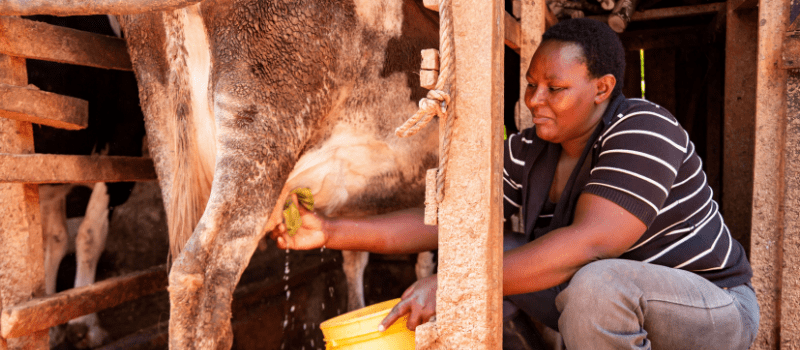#VETSVolunteerVoices aims to bring you the stories of our passionate VETS program volunteers from the field. Meet Madalyn Nielsen, a Gender Advisor Volunteer who spent 3 months in rural Kenya (May - August 2024).
Recently, we had the chance to sit down with Madalyn Nielsen to hear about her work addressing gender dynamics in dairy farming as a VETS volunteer in Kenya. During her placement, Madalyn facilitated gender capacity-sharing sessions and collaborated with farmers and partner staff to promote gender equality in their communities. Her experience not only advanced local discussions about gender roles but also deepened her understanding of the intersection between gender equity and farm success. Here, Madalyn shares some of her key reflections from her time in the field.
A Unique Path to Gender Advocacy
When Madalyn embarked on her VETS Volunteer placement in Kenya, she brought with her a unique blend of expertise: an undergraduate degree in Bioveterinary Science and a master’s in Global Development Studies. This combination, along with her upbringing in rural Nova Scotia, made her well-suited to take on the role of Gender Advisor in the lush, rural setting of Meru County, Kenya. However, it was her deep passion for gender equality that drove her most. “I grew up showing dairy cows and have always been passionate about rural farming communities,” she says. “When I saw the opportunity to apply my knowledge of One Health in a practical setting while supporting gender equality, I knew this placement with VWB was exactly what I’d been looking for.”
 PHOTO: Madalyn on a Meru County farm visit.
PHOTO: Madalyn on a Meru County farm visit.
 PHOTO: Madalyn Nielsen.
PHOTO: Madalyn Nielsen.
 PHOTO: Madalyn delivering training to Kithingari farmers.
PHOTO: Madalyn delivering training to Kithingari farmers.
Creating Space for Gender Equality Conversations
In rural Kenya, agriculture is the backbone of the economy, with smallholder farmers contributing about 75% of the country’s total agricultural output. Among these farmers, women play a critical role, making up nearly 80% of the agricultural labor force, particularly in dairy farming. Despite this, women own less than 2% of the land and have limited access to resources such as credit, training, and decision-making opportunities. This gender gap not only affects women’s livelihoods but also impacts the overall productivity of farming communities.
For Madalyn, addressing these inequalities wasn’t merely a job to do, it was a passion. Her work with the Meru Dairy Cooperative focused on facilitating gender capacity-sharing sessions that encouraged farmers and partner staff to have honest conversations about the gender dynamics affecting their livelihoods.
“Gender is culturally informed,” Madalyn explains. “It was important to me that the farmers and partners themselves identified the inequalities they face in their daily lives. We didn’t want to impose external ideas, but rather create a space where everyone—not just women—could be part of the solution.”
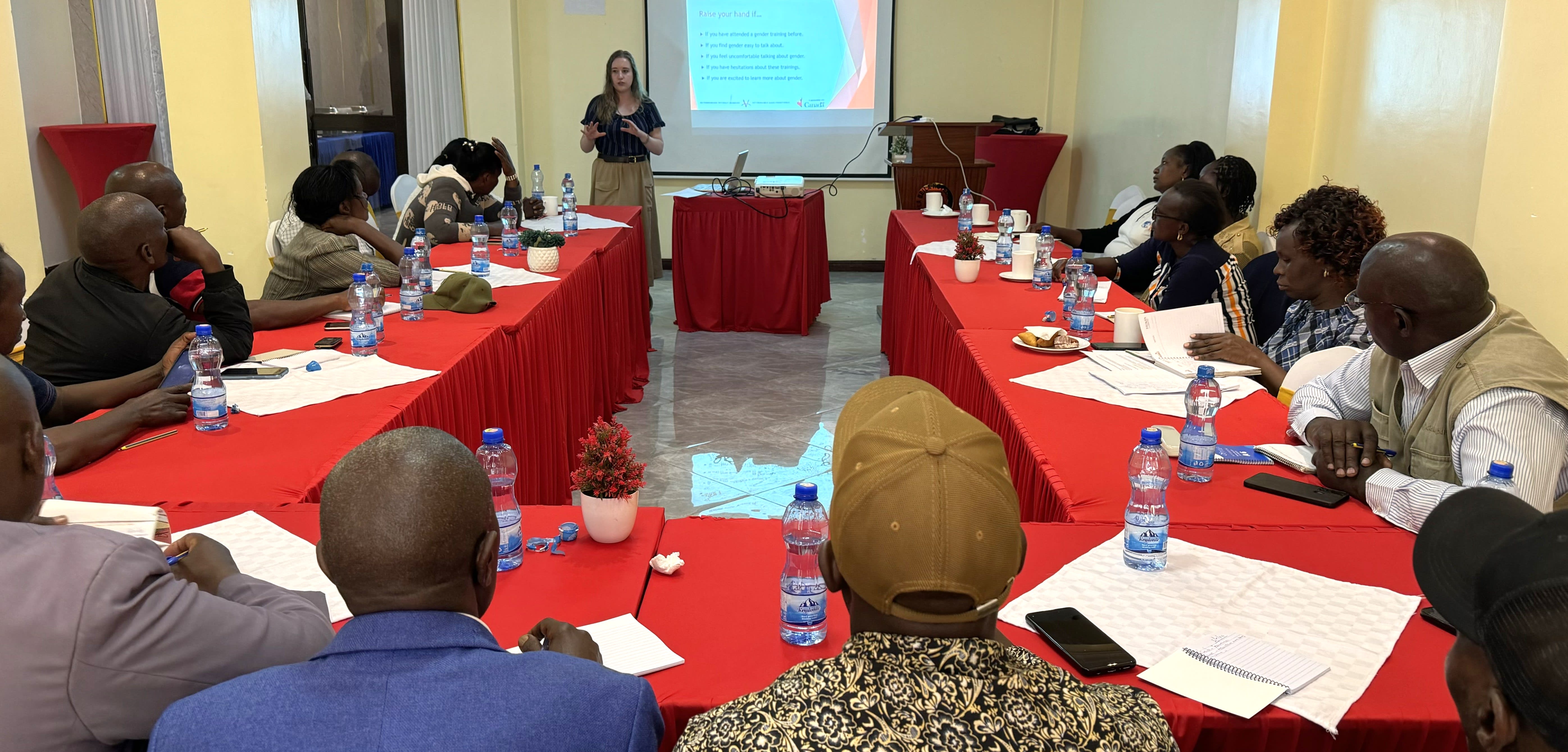 PHOTO: Madalyn delivering gender training to 18 Community One Health Champions (COHCs) - both men and women - who were trained as COHCs through the VETS program.
PHOTO: Madalyn delivering gender training to 18 Community One Health Champions (COHCs) - both men and women - who were trained as COHCs through the VETS program.
One of the key challenges she encountered was the division of labor in households. “In many of the families I worked with, women were primarily responsible for the milking, childcare, cooking, and cleaning, in addition to managing the farm. Even though men and women often discussed financial decisions together, it was usually the men who had the final say,” she says.
Through her gender training sessions, Madalyn helped farmers explore the benefits of more equal decision-making between men and women. “When both men and women actively participate in decision-making, farms are more successful. Families benefit, and communities thrive. The farmers I worked with were open to these ideas, and it was encouraging to see them start considering more equitable ways of sharing responsibilities.”
Training with Purpose
Madalyn’s days were often long and varied. A typical day could start with gender training for Meru Dairy partner staff, sometimes engaging groups of 15 to 100 people, followed by field visits to more rural locations for farmer trainings with dairy extension officers and other volunteers.
“My role was to ensure that discussions about gender equality were integrated into the broader animal health trainings,” she says. “We would often discuss improving milk quality or preventing mastitis, and then transition into how gender roles influence who is responsible for milking or the role of women in farm management.”
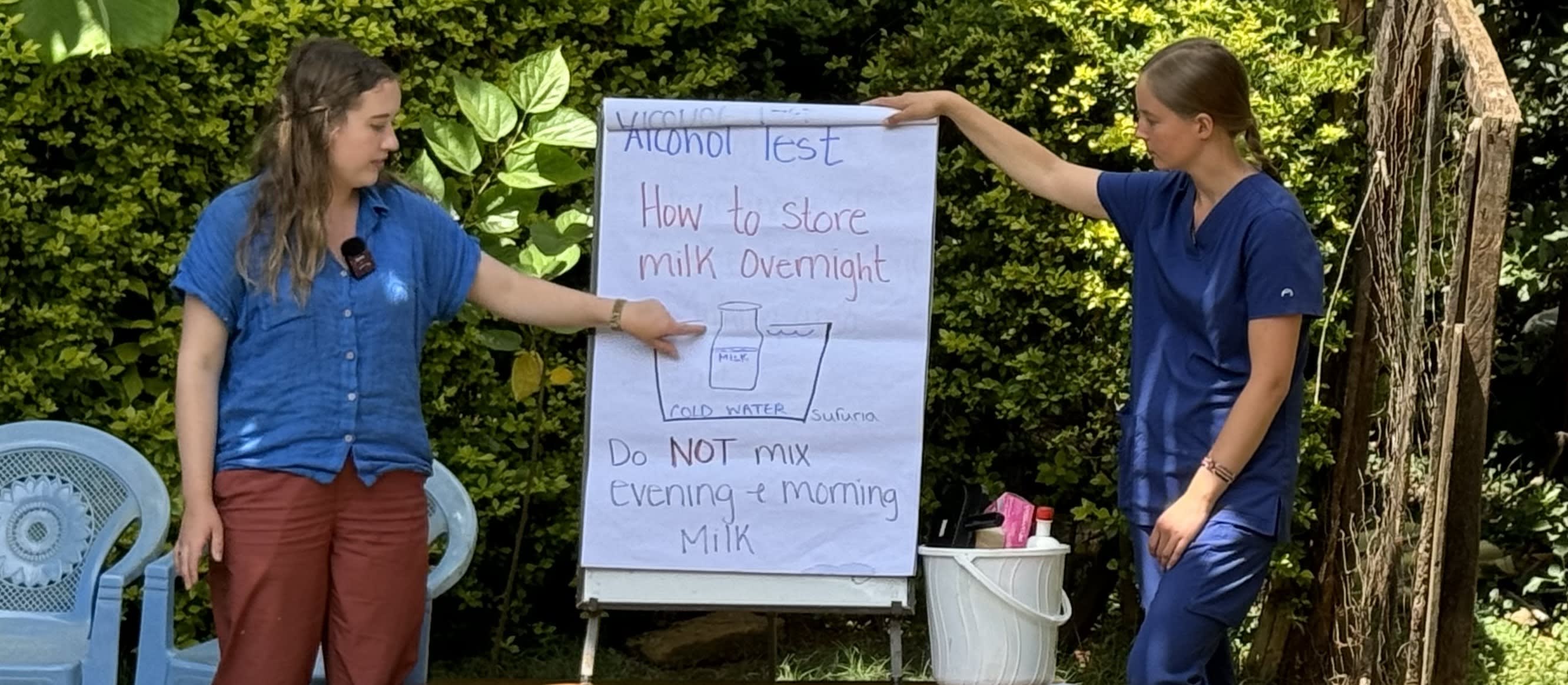 PHOTO: Madalyn and her volunteer colleague, Lucie Weiland (Animal Health Advisor Volunteer), jointly deliver training to to farmers of the Lower Kithingari Dairy Cooperative.
PHOTO: Madalyn and her volunteer colleague, Lucie Weiland (Animal Health Advisor Volunteer), jointly deliver training to to farmers of the Lower Kithingari Dairy Cooperative.
This integration of gender topics into technical trainings proved to be a powerful approach. One area that particularly resonated with the farmers was women’s leadership in dairy cooperative societies. Although Kenya’s “2/3 gender rule” requires at least two-thirds gender representation in elected bodies, including cooperatives, many cooperatives in Meru County still struggle with low female representation. In fact, less than 14% of dairy cooperatives are led by women, a statistic that mirrors the challenges women face globally in assuming leadership roles in agriculture.
During her time in Meru, Madalyn saw firsthand how barriers like lack of time, cultural expectations, and male resistance to female empowerment were preventing women from stepping into leadership positions. “Some men felt that empowering women took opportunities away from them, but through discussions, we were able to show that gender equity benefits everyone,” she recalls.
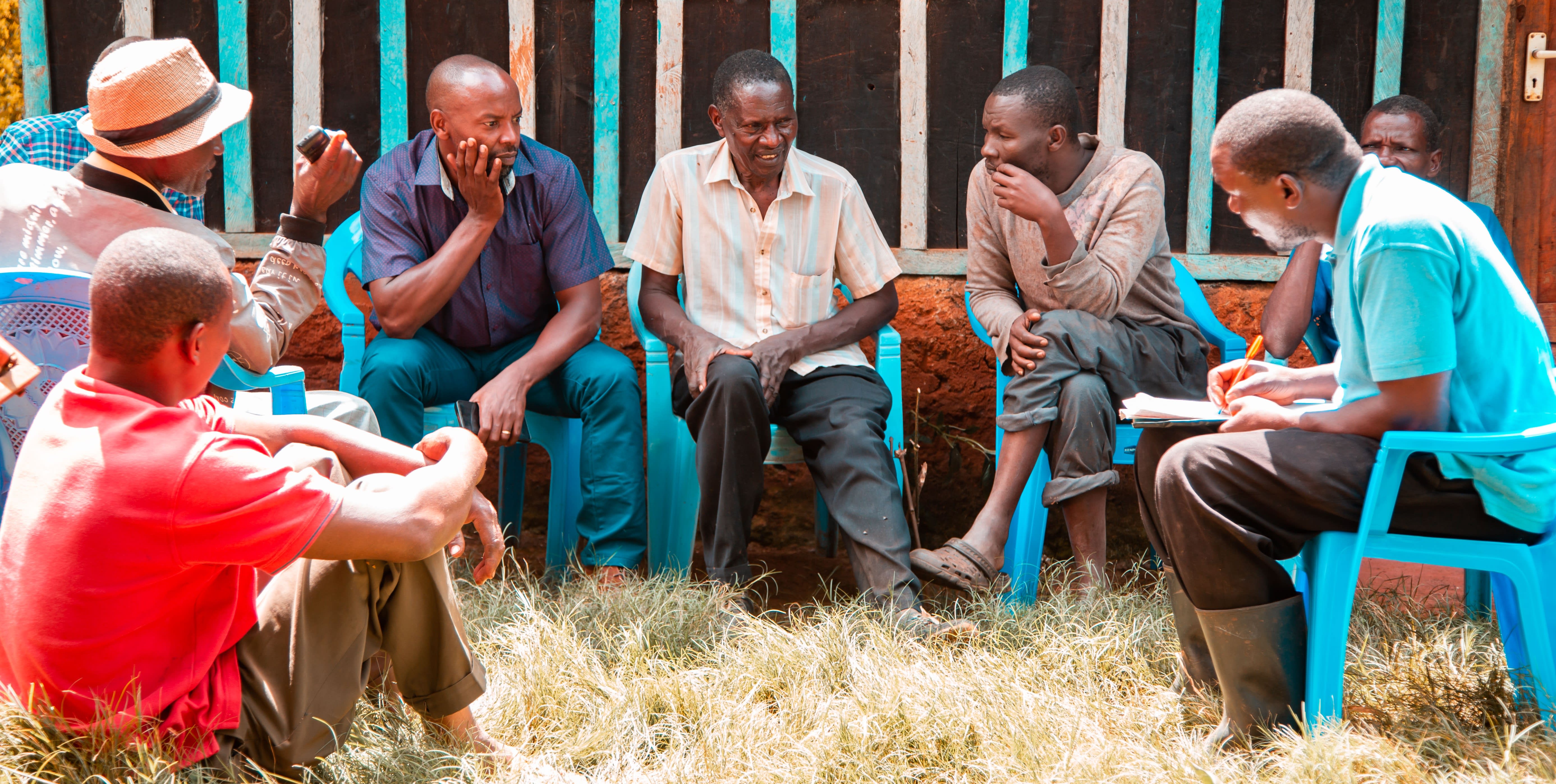 PHOTO: At the Kithingari training, Madalyn encourages men and women farmers to break into separate groups and reflect on the tasks that make up their daily schedules.
PHOTO: At the Kithingari training, Madalyn encourages men and women farmers to break into separate groups and reflect on the tasks that make up their daily schedules.
Madalyn’s efforts to raise awareness about these issues bore fruit. At Mukami Co-op Society, women who had previously felt excluded from leadership opportunities began to speak up, encouraged by their peers and Madalyn’s training. “The women realized that their voices were important, and they started talking about running for positions in the upcoming elections,” Madalyn says. “It was amazing to see their confidence grow as they recognized their own potential.”
Impact and Inspiration
While gender equality is a long-term process, Madalyn saw several moments of progress during her placement. One standout example was Lucy, a farmer and cooperative board member who became a beacon of resilience and leadership in her community. Lucy not only managed her farm single-handedly to support her children’s education but also went out of her way to help feed neighbors who were struggling with food insecurity.
“Lucy is one of those women who just naturally uplifts others,” Madalyn shares. “She’s a leader in every sense of the word, not only running her own farm but also helping her community. Her story really demonstrates the kind of ripple effect that strong women leaders can have in rural areas.”
Madalyn saw this ripple effect across other cooperatives as well, where women who participated in her gender sessions began taking on more visible roles in their communities. “It’s not just about getting women into leadership positions; it’s about creating a culture where their contributions are valued and where they have the support they need to succeed,” she says.
New Insights on Gender Equality in Agriculture
Madalyn’s placement offered her a deeper understanding of how closely gender equality and animal health are connected. In Kenya, where dairy farming is a critical source of income for many families, improved herd health directly influences women’s economic opportunities and leadership potential.
“I’ve always understood the link between healthy animals and human well-being,” she explains. “But seeing how improving animal health can also improve gender equality in livestock production was really eye-opening. When women are empowered to take on leadership roles, it not only benefits their households but also strengthens the community as a whole.”
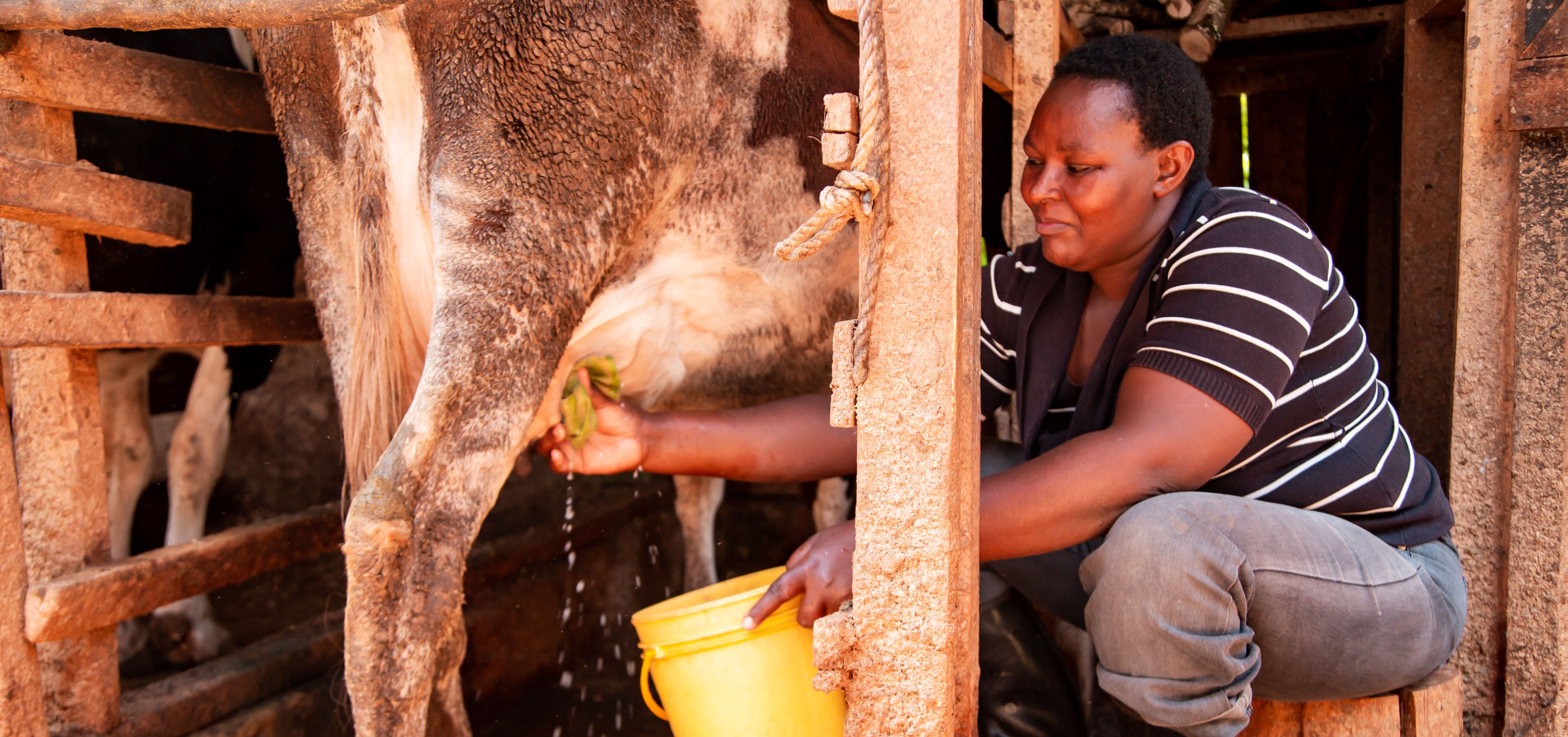 PHOTO: Mercy Kuthure, a dairy farmer in Rutiti Village, increased her cow's productivity since she received training in cow nutrition, calf rearing, and silage making through the VETS program.
PHOTO: Mercy Kuthure, a dairy farmer in Rutiti Village, increased her cow's productivity since she received training in cow nutrition, calf rearing, and silage making through the VETS program.
For example, women in cooperatives producing higher quality milk were more likely to pursue leadership roles, as their success in improving farm productivity gave them the confidence to advocate for themselves and others. “It’s incredible how something as simple as better milk quality can translate into greater leadership opportunities for women,” Madalyn reflects.
Advice for Future Volunteers
For those considering a VETS volunteer placement, Madalyn’s advice is straightforward: “Keep an open mind and be willing to listen. Volunteers all come with different skill sets, and you don’t need an agricultural background to make an impact,” she explains. “But it’s essential to listen to the farmers and partner staff. Their local knowledge is invaluable, and the solutions we bring must be informed by their lived experiences.”
She also emphasizes the importance of adopting a gender-sensitive lens, regardless of your role. “Even if you’re not in a gender-focused role, ask questions about how different genders experience challenges and benefits in farming. It’s a crucial aspect of understanding the full picture.”
Madalyn’s experience as a Gender Advisor Volunteer with the VETS program was more than a volunteer placement—it was a deeply enriching journey that expanded her understanding of gender equality in agricultural settings. For her, it reinforced the belief that meaningful change happens when communities come together to find solutions that work for everyone.
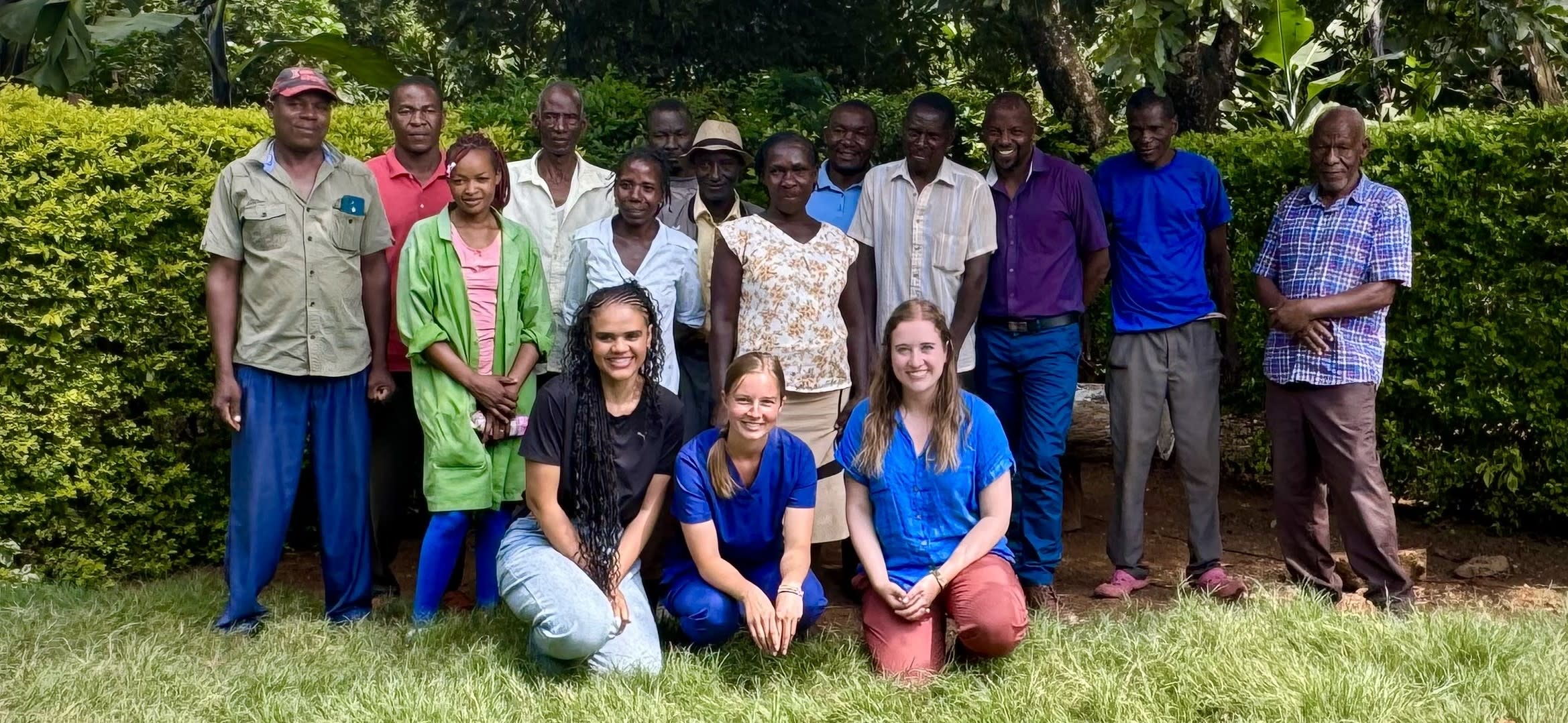 PHOTO: Madalyn (front row, right) with her VETS volunteer colleagues (Mariam Gonde, left, and Lucie Weiland, center) and farmers from the Lower Kithingari Dairy Co-op.
PHOTO: Madalyn (front row, right) with her VETS volunteer colleagues (Mariam Gonde, left, and Lucie Weiland, center) and farmers from the Lower Kithingari Dairy Co-op.
VETS is an 8-year initiative (2020-2028) to improve the economic and social well-being of marginalized people, particularly women and girls, in 6 countries across Africa and Asia. In collaboration with local partners, the program is implemented through 190 Canadian volunteers on international assignment and is generously funded by Global Affairs Canada. Learn more.

